This site is intended for US healthcare professionals
Alzheimer’s disease (AD) is
A complex, multifactorial disease of neurodegeneration1-3
In AD, neurotoxic insults contribute to loss of neuronal integrity, including synaptic loss, diminished network connectivity, and a decline in cognitive and functional ability4-6

References:
1. Desole C, Gallo S, Vitacolona A, et al. HGF and MET: from brain development to neurological disorders. Front Cell Dev Bio. 2021. doi:3389/fcell.2021.683609 2. Takeuchi D, Sato N, Shimamura M, et al. Alleviation of Ab-induced cognitive impairment by ultrasound-mediated gene transfer of HGF in a mouse model. Gene Ther. 2008;15(8):561-571. 3. Wei J, Ma X, Nehme A, Cui Y, Zhang L, Qiu S. Reduced HGF/MET signaling may contribute to the synaptic pathology in an Alzheimer’s Disease mouse model. Front Aging Neurosci. 2022. doi:10.3389/fnagi.2022.954266 4. Johnston JL, Reda SM, Setti SE, et al. Fosgonimeton, a novel positive modulator of the HGF/MET system, promotes neurotrophic and procognitive effects in models of dementia. Neurotherapeutics. 2023;20(2):431-451.